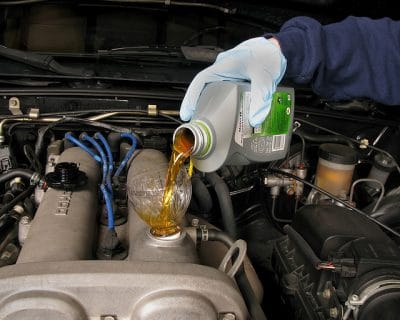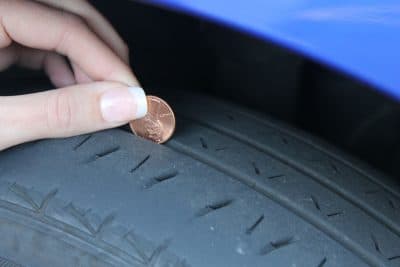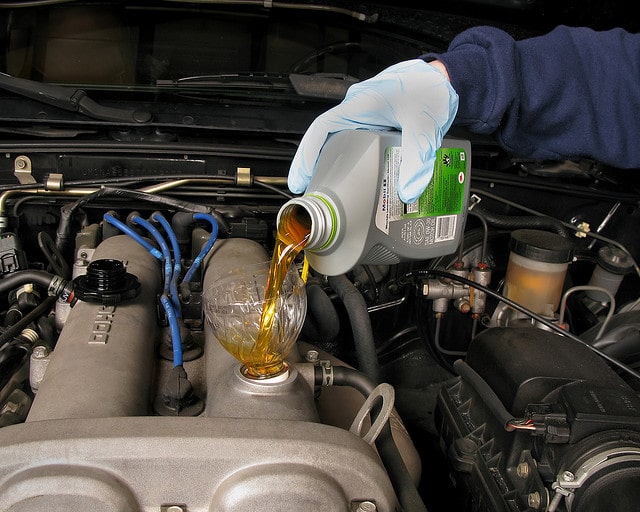Paying auto shops for car repairs or simple check-ups can add up. You might spend more money in the long run at a shop than you would spend buying materials and learning to do certain tasks yourself.
An AutoMD infographic shows the cost differences between going to a shop for a repair and doing it yourself. The minimum amount of savings they list is $28.
That may vary depending on where you live, what shop you go to, and what kind of car you drive, but it is still a good idea to learn basic car maintenance skills for cost efficiency. And just in case a shop is not available, you’ll still have optoins. Here is a guide to maintenance or repair jobs you can save money on by doing yourself.
Table of Contents
Changing Windshield Wipers
Windshield wipers vary in price depending on the brand, but you can generally buy them for less than $10 each and install them for free in just minutes—much cheaper than what some shops would charge you.
Checking your windshield wipers every six months is a good general rule, but change them once they leave streaks on your window or start to wear. Changing the blades is easy and straightforward.
First, find the right blade fit for your car. You can either measure your current blades’ lengths or use online help. Websites like AdvanceAutoParts or Rain-x give you a list of personalized blade options after you give your car year, make, and model.
Once you know your wipers’ lengths, find out what type of blade arm you have. Installation can be as simple as pushing a tab to release the blade and sliding in a new blade until it clicks in.
It can be more complex with the different types of blades, but it’s nothing you can’t handle. Watch Rain-x’s installation videos for guidance on installing different arm types if you have questions.
Keeping Up with Fluids and Oil
 Check your fluid levels monthly, especially if you are worried about leaks. You could also check them every three months.
Check your fluid levels monthly, especially if you are worried about leaks. You could also check them every three months.
The fluids you should be aware of include windshield wiper fluid, power steering fluid, coolant, antifreeze, and brake fluid. Check your owner’s manual before adding fluid for recommended levels and types.
Checking your oil is important because not paying attention to your oil can lead to serious engine problems later.
To check your oil, locate the yellow or orange dipstick handle and pull it out. Wipe the bottom end clean, put the stick back into the oil tube, pull it out again, and check the level. The marks on the end of the stick should tell you if your oil is full or if you need to add some. See this infographic from Primer Magazine for a step-by-step visual.
You should change your oil every three months or every 3,000 to 6,000 miles. You can easily learn to do this yourself to save money instead of taking your car to a shop.
Changing Your Air Filter
Like most repairs and changes, when to change your engine air filter depends on your car and your driving conditions and habits. Most people recommend changing your air filter every year or two, or about every 30,000 miles. If you drive in dusty or dirty conditions, like in or near construction sites, you might have to change it more often.
You can know when you should change your air filter just by looking at it. Your air filter unit is a rectangular or circular plastic casing near your car’s engine.
Some cases come off by unlatching clips on the side; others require you to use a screwdriver to unscrew nuts and bolts. Popping off the cover is not difficult in any case. Just do not lose any screws you take off.
If the filter looks dirty, replace it with a new one. Change it when it’s too dirty for the sun to shine through, or if it still looks dirty after a light shake in a garbage can.
Be careful not to spread any dirt into the casing. You might want to clean out the casing with a damp, but not wet, cloth. Then put the new filter in and replace and secure the cover.
Maintaining Your Tires
 You should regularly make sure your tires are in good condition. Lifehacker.com says driving with under-inflated tires is the leading cause of tire failure.
You should regularly make sure your tires are in good condition. Lifehacker.com says driving with under-inflated tires is the leading cause of tire failure.
To avoid this, check the air pressure in your tires every month and fill if it is low. Consult your owner’s manual, a sticker on the inside driver’s door, or your tires for the recommended tire pressure level. There will be a number and a “psi,” or “pounds per square inch.”
Beyond making sure your tires are adequately inflated, you should check your tires’ tread every 3,000 miles. You can do this with the penny test. Put a penny into the tread with Lincoln’s head facing toward you and upside down. If you can see all of Lincoln’s head, the tire’s tread is worn out and it is time to replace your tire.
Rotating your tires is important to extending your tires’ lives and giving you a smooth ride. Check your car manual for recommendations, but a general rule is to rotate your tires every 5,000 to 8,000 miles.
Rotating your tires regularly will give your tires more mileage. The front tires carry more weight and tend to wear out faster. Changing the positions of your tires switches up the weight each tire carries in a given amount of time and decreases excess overall wear.
These are just some basic tips on what to change and how, but following these guidelines could save you money and can help your car run smoothly. Plus, it will give you the satisfaction of a job well done.
Photo 1 copyright to Robert Couse-Baker
Photo 2 courtesy of Pixabay
